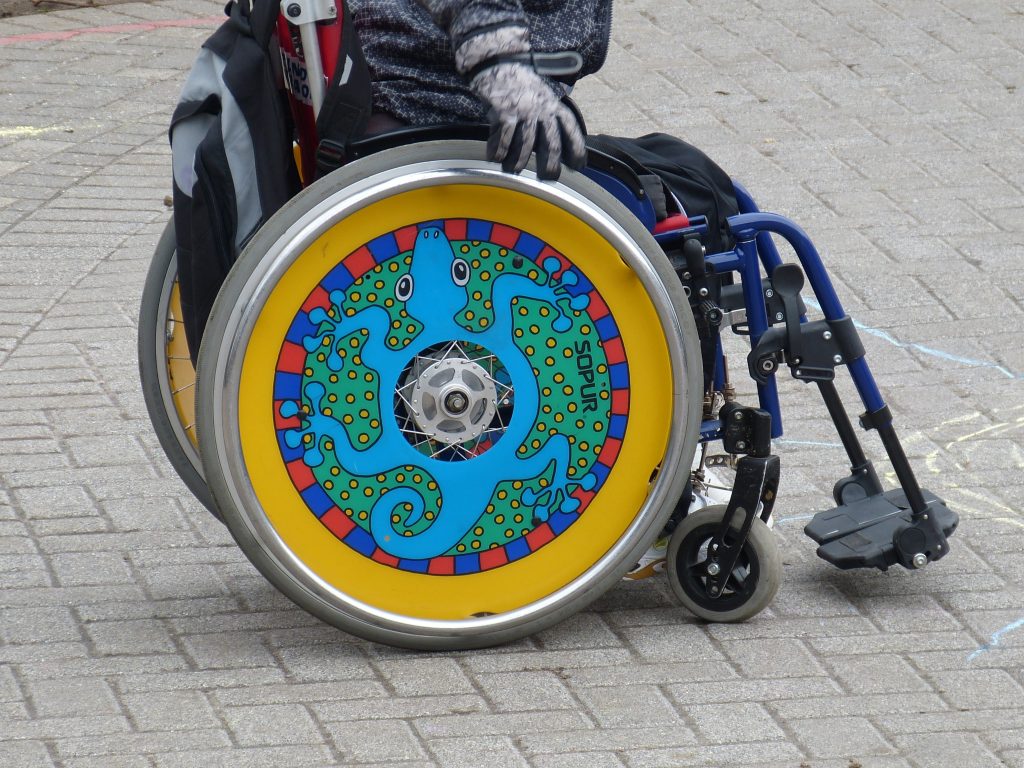By Chani Gergel, Principal of the Netzach Yisrael Beit Yaakov Elementary School in Beit Shemesh.
One of the many challenges we face in education today is teaching children about people who look or behave differently from them. Children’s natural curiosity often leads them to react in ways that may appear insensitive: staring at someone in a wheelchair, or asking “inappropriate” questions about someone who looks “weird” as we walk past them in the street. These are natural reactions, and we are usually embarrassed because children don’t yet have the sensitivity to wait until the person that intrigues them is out of earshot! After all, tact and sensitivity are among the many life-skills that must be taught to children by their parents and teachers.
As educators, one of our goals in teaching children to be sensitive is to help them to recognize the “Tzelem Elokim” inside every person they meet, even when they look or behave differently. It is not always easy to find gentle ways to bring such important chinuch messages into the classroom. Last year, we were asked to host an 11-year-old girl with severe physical disabilities who wanted to learn with her able-bodied peers one day each week. It was a fantastic experience for everyone involved.
Our Kitah Heh students accepted her with open arms, waiting eagerly for her arrival each week. At the start of the year, their teacher planned special activities to help the girls get to know their guest and understand her abilities and challenges. She could only communicate through a computer by blinking her eyes, but she was able to answer their questions and develop relationships with them. After a few weeks, we realized that she didn’t want to be treated as different but to participate in their regular Torah lessons.
The girls learned to treat their new friend normally, but they also discovered how strong and brave she was. They visited her special school and tried out her computer communication system, in order to understand the many challenges that she has to overcome every day. It helped them to appreciate their own abilities, to learn about themselves, and to see beyond their friend’s disability.
Over the summer, many of our students attended her Bat Mitzvah, dancing with her friends from her “other” school. When they moved up into Kitah Vav and an inaccessible homeroom, they were devastated to discover that she could not join them in her wheelchair. We are now working on providing a ramp from the playground to make it possible for her to recommence her weekly lessons.
Hosting this student has been an interesting experience for our school, and I’m proud that we rose to the challenge. Teachers and parents worked together to facilitate visits between the students at both schools. Most of all, I am proud of how our students embraced her neshama, looking past her physical restrictions and finding ways to communicate and connect with her. I am sure that this experience will make them more empathetic and understanding in all their interactions with people they will meet throughout their lives who look different.
I asked the principal of the special school who asked us to host this student why she chose our school. She told me that the Netzach Yisrael schools in Beit Shemesh have developed a strong reputation for mainstreaming religious children with special educational needs, not just because we have the capabilities to accept them, but because the value of inclusivity is clearly an intrinsic part of our ethos.
Our twin-brother-school, Talmud Torah Netzach Yisrael, currently has 80 students on their special education track – more than any other Charedi school in Israel – including 2 classes for boys on the autistic spectrum and 20 boys who are mainstreamed. They do their best to integrate them into age-appropriate classes whenever possible, as well as giving them maximum professional support to help them overcome their learning difficulties. In addition, five students from a local Cheder for boys with Down Syndrome visit the school each week to learn and play with Netzach’s Kitah Aleph students, who become their ‘Big Brothers’ and learn to advocate on their behalf.
Our children always look to us to set an example when they encounter different people or situations. We must try to model empathy and respect, not by treating people with special needs as “chessed cases” but as 100% equal neshamot, created B’tzelem Elokim to help us make our world a better, kinder place.
Mrs. Chani Gergel is the Principal of the Netzach Yisrael Beit Yaakov Elementary School in Beit Shemesh.

